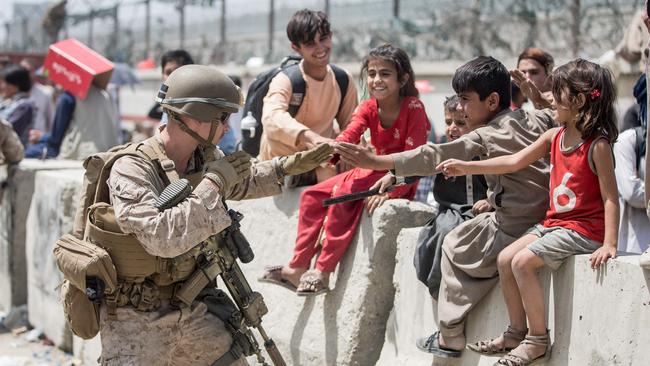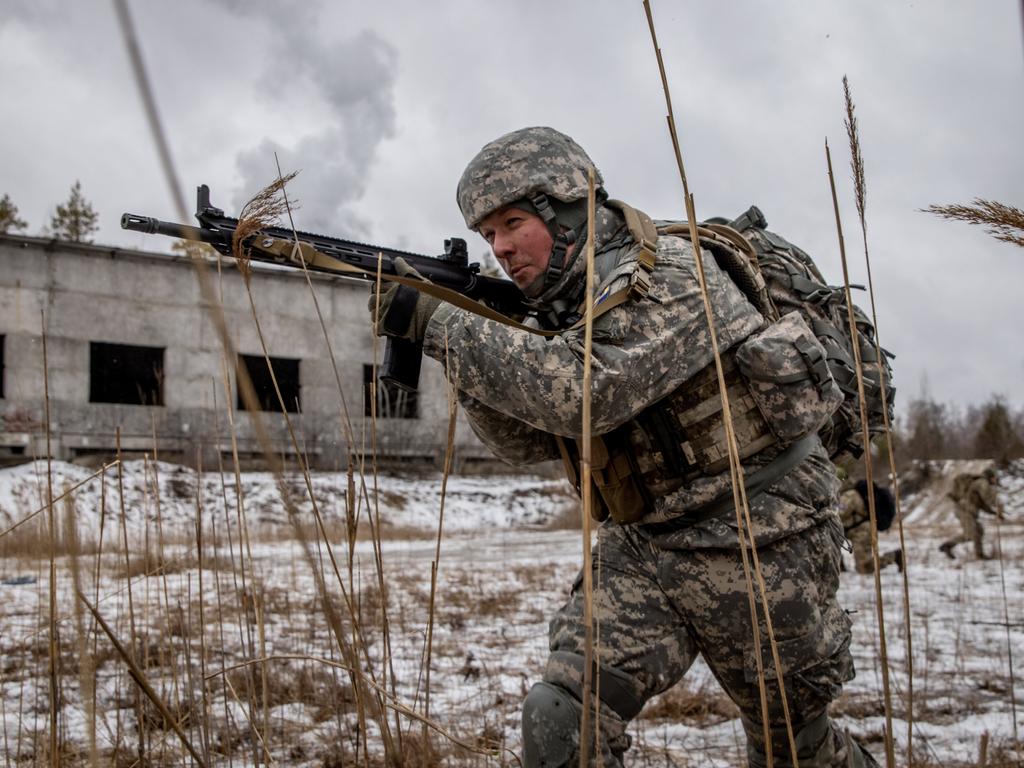Afghan refugees who fled Taliban for safer life in Kiev
Afghans stranded in Ukraine are hoarding rations and cash, and checking potential escape routes as they watch for signs of a Russian attack.

On Kiev’s streets, where Ukrainians talk of war – or ignore its approach – stranded Afghans who a few months ago escaped conflict watch with jaded eyes, and prepare for what may come.
“I thought Kabul would resist for months but it fell in days,” Masouma Tajik, a refugee, said.
“Things can move so fast. My Ukrainian friends still sound so confident that they will never be oppressed again, that the worst will not come. I tell them: ‘You haven’t seen how fast the worst can happen, what the unexpected looks like, how suddenly things can change’.”
Freedom remains elusive for Tajik, 22, a data analyst from Herat who fled from the Taliban aboard a cargo plane in August with her friend, Sahar Merzaie. Now peace seems fragile too.
The two women are among 600 Afghans who escaped from Kabul and ended up trapped in Ukraine. While many in Kiev appear oblivious to their country’s impending fate, Tajik and Merzaie are hoarding rations and cash, and checking potential escape routes as they watch for signs of a Russian attack.
“The night before the Taliban took Kabul, I was on a balcony talking to a friend on the phone,” Merzaie, 28, a maths graduate, said as she looked out of the window across Kiev. “There was no sign or sound of fighting but I noticed a sudden suffocating silence, a stillness. I realised at that moment something bad was coming, that I was standing in a silence before a storm. Now I wait once more to feel like that again.”
When they climbed aboard a military plane at Kabul airport on August 21 last year, amid scenes of bedlam, Tajik’s pride was still stinging from being whipped by the Taliban. Their dreams of escaping to freedom did not last long. “I had no idea where my eventual destination would be, just that I was escaping from war and the Taliban,” Merzaie said. “Yet I am stranded once more, trapped in a land where I am an illegal immigrant … and where war once more haunts our days.”
The missions supported by President Volodymyr Zelensky to save Afghan refugees lasted for weeks after the last British or American planes departed from Kabul. Once inside the former Soviet state, however, some of the Afghans were placed in detention camps. Others found that gridlocked local bureaucracy made them “illegal immigrants”, holding them in a land where they could not open a bank account.
“I was taken from the plane in a bus to a closed detention facility near the border with Belarus,” said Fazila Haidary, 26, a flight attendant. She was on duty with her sister, Shagufa, in the airport the night of the Taliban’s sudden entry into Kabul. The two women quickly ditched their uniforms and scaled a ladder into the only civilian aircraft waiting to take off as mobs swarmed on to the runway. Neither sister had any idea where they were heading.
“The next day we found ourselves behind gates and wire in Ukraine in a section neighbouring one holding convicts,” Haidary said. “We had no wi-fi, no SIM cards, no TV … filthy conditions, and were fed rice with insects in it.”
They remained in detention for two weeks before being allowed to rent accommodation in Kiev with borrowed money. They cannot leave but have no visa granting them rights to stay.
Tears come quickly for those scarred by war. Tajik said she cried at the sound of jets overhead on a Ukrainian military parade. But her experience has made her philosophical. “I have had to accept that as an immigrant raised in war, I don’t live in the world I would wish,” she said. “I must recognise that war may be coming again and work out how I respond to that. We in the Afghan diaspora know war and we know how to adapt.”
Her friend Merzaie said she was trying to find accommodation near the US embassy for greater security. “The area may be less likely to be hit by missiles,” she said. “I cannot bear the thought that war will chase me again.”
Eking work or borrowing rent, they talk with Ukrainian friends about the price of freedom, about liberty and what is worth fighting for. “I admire the confidence of my Ukrainian friends,” Tajik said. “I like the pride they have in what they have achieved here, I like their certainty that things will be OK, even if I don’t think it is true. I feel war is coming but perhaps I do not fear it as much as I did before. Can the result be something worse for women here than being whipped as they walk down a street?”
The Times




To join the conversation, please log in. Don't have an account? Register
Join the conversation, you are commenting as Logout